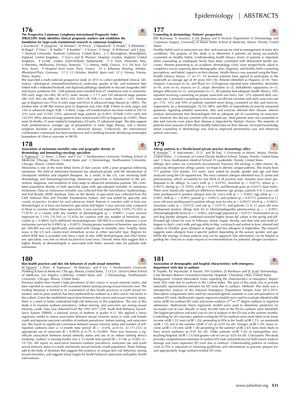The Prospective Cutaneous Lymphoma International Prognostic Index (PROCLIPI) Study Identifies Clinical Prognostic Markers and Establishes the Foundation for Large-Scale Translational Research in Cutaneous Lymphoma
April 2019
in “
Journal of Investigative Dermatology
”

TLDR The PROCLIPI study found markers that help predict outcomes in skin lymphoma patients.
The PROCLIPI study, initiated in 2015, included 1,286 patients with mycosis fungoides and Sezary syndrome from 47 institutions worldwide, revealing a male predominance and median ages at diagnosis of 57 years for early stage and 65 years for advanced stage. The research showed that patients with early-stage disease had symptoms for a median of 24 months before diagnosis, while those with advanced-stage disease had symptoms for 12 months. Large cell transformation occurred in 18% of advanced stage patients compared to 3% in early stage, and elevated serum LDH was found in 48% of advanced stage patients versus 14% in early stage. Out of 56 deaths, 35 were lymphoma-related, with a higher number in advanced stages. The study identified clinical prognostic markers, including male gender, younger age at early stage presentation, and shorter symptom duration at advanced stage presentation, aiding in the identification of biomarkers for clinical outcomes in cutaneous lymphoma.






